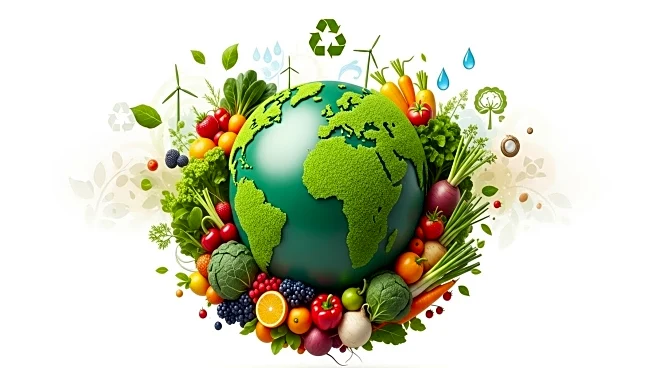What's Happening?
The industrial food system is under scrutiny for its significant health and environmental costs, which are estimated to exceed $10 trillion annually. This model, driven by the cheaper food paradigm, market concentration, and path dependencies, is criticized for contributing to global malnutrition and obesity. The system prioritizes efficiency and market liberalization, often at the expense of health and environmental sustainability. As geopolitical conditions shift towards protectionism and nationalism, the stability of this model is increasingly questioned. Experts argue that unlocking the 'triple lock-in' of the food system is essential for achieving systemic change and addressing climate and health impacts.
Why It's Important?
The critique of the industrial food system highlights the urgent need for reform in how food is produced and distributed globally. The current model's focus on cheap food has led to significant external costs, including environmental degradation and public health issues. As geopolitical tensions rise, the system's reliance on global stability and open markets is threatened, potentially leading to disruptions in food supply chains. Addressing these challenges requires a shift towards more sustainable practices and policies that prioritize health and environmental outcomes. The debate over the food system's future could influence public policy, industry practices, and consumer behavior, with implications for global food security and sustainability.









